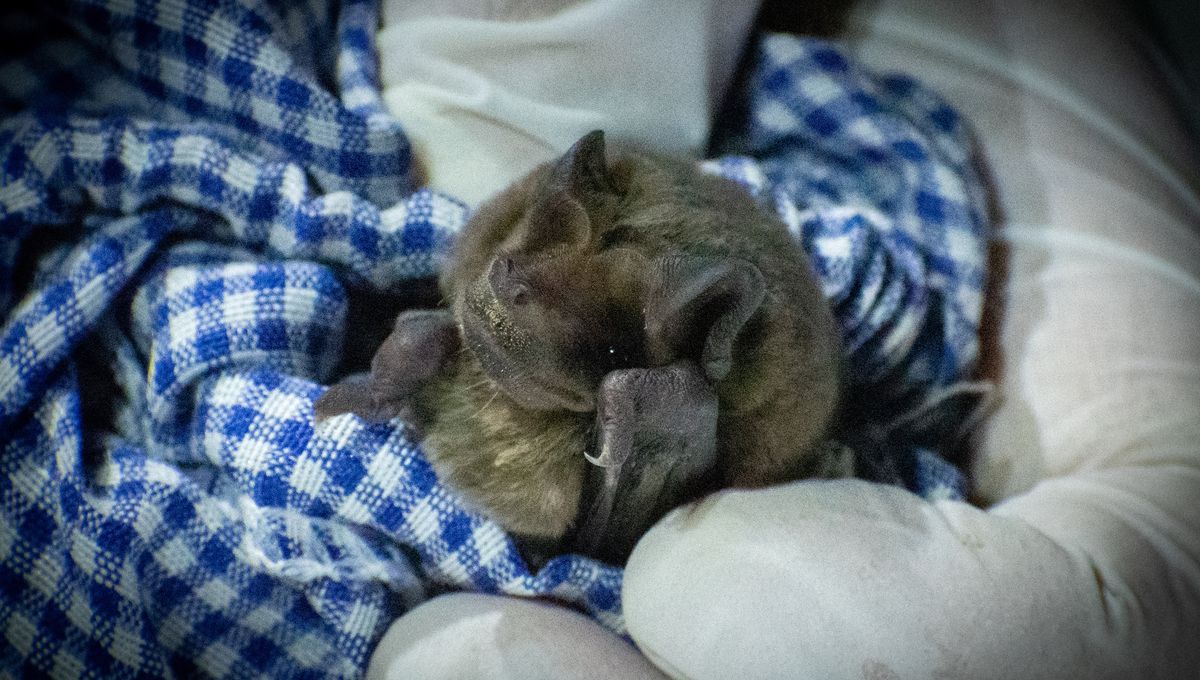
While carrying out surveillance of bats in Brazil, scientists have identified multiple different coronaviruses, including a brand-new one that they discovered was closely related to the virus behind Middle East Respiratory Syndrome (MERS).
ADVERTISEMENT
The discovery came as part of a project to identify new pathogens with zoonotic potential – meaning they can jump from animals to humans – in the hopes of nipping new diseases in the bud before they can reach humans. Bats are considered to be an important part of this surveillance, with several human-infecting viruses having been linked back to them.
“Bats are important viral reservoirs and should therefore be submitted to continuous epidemiological surveillance,” explained Ricardo Durães-Carvalho, one of the authors of the article describing the new virus discovery, in a statement. “This monitoring helps identify circulating viruses and risks of transmission to other animals, and even to humans.”
As part of the monitoring process, Durães-Carvalho and colleagues took over 400 oral and rectal swabs from 16 different bat species found in Brazil. They then screened the swabs using multiple different techniques, including RNA sequencing – coronaviruses are a group of RNA viruses – and identified seven distinct coronaviruses.
From this analysis, one of the viruses was found to have a genetic sequence with 71.9 percent similarity to that of the Middle East respiratory syndrome coronavirus (MERS-CoV), the virus behind the often severe respiratory illness.
The researchers also found that the new virus’s spike protein – a protein found on the surface of some viruses that allows them to latch onto and infect host cells – also shared strong similarity with that of MERS-CoV.
Since it was first identified in 2012, the World Health Organization (WHO) says there have been a total of 2,618 confirmed cases of MERS, and 945 deaths associated with the illness. The WHO also considers MERS-CoV to be an emerging pathogen with pandemic potential.
ADVERTISEMENT
Given its similarity, then, some might be concerned that this newly discovered virus is also capable of infecting humans – but the answer, at least for now, is that we simply don’t know.
“Right now we aren’t sure it can infect humans, but we detected parts of the virus’s spike protein [which binds to mammalian cells to start an infection] suggesting potential interaction with the receptor used by MERS-CoV,” said the study’s first author, Bruna Stefanie Silvério. “To find out more, we plan to conduct experiments in Hong Kong during the current year.”
The study is published in the Journal of Medical Virology.
Source Link: New MERS-Related Coronavirus Discovered In Brazilian Bats – But Can It Infect Humans?